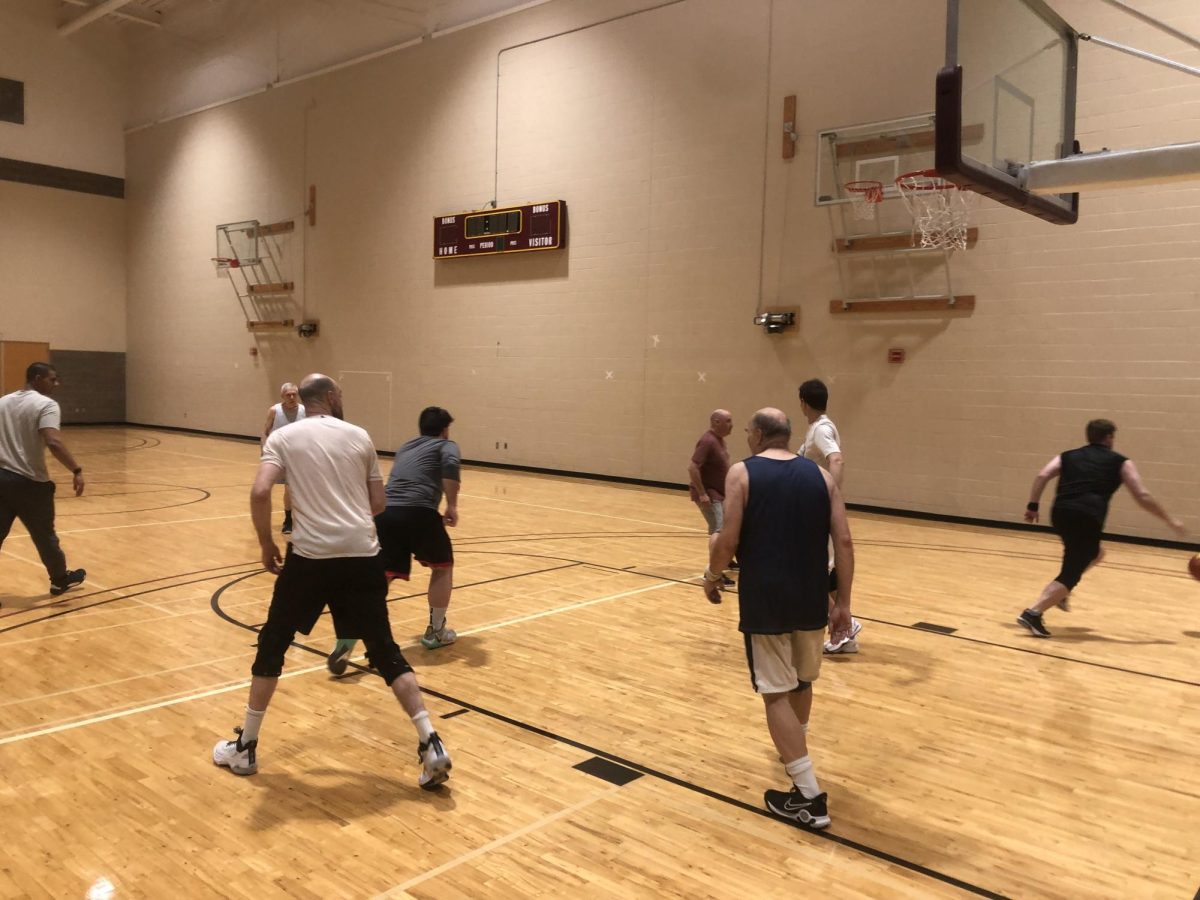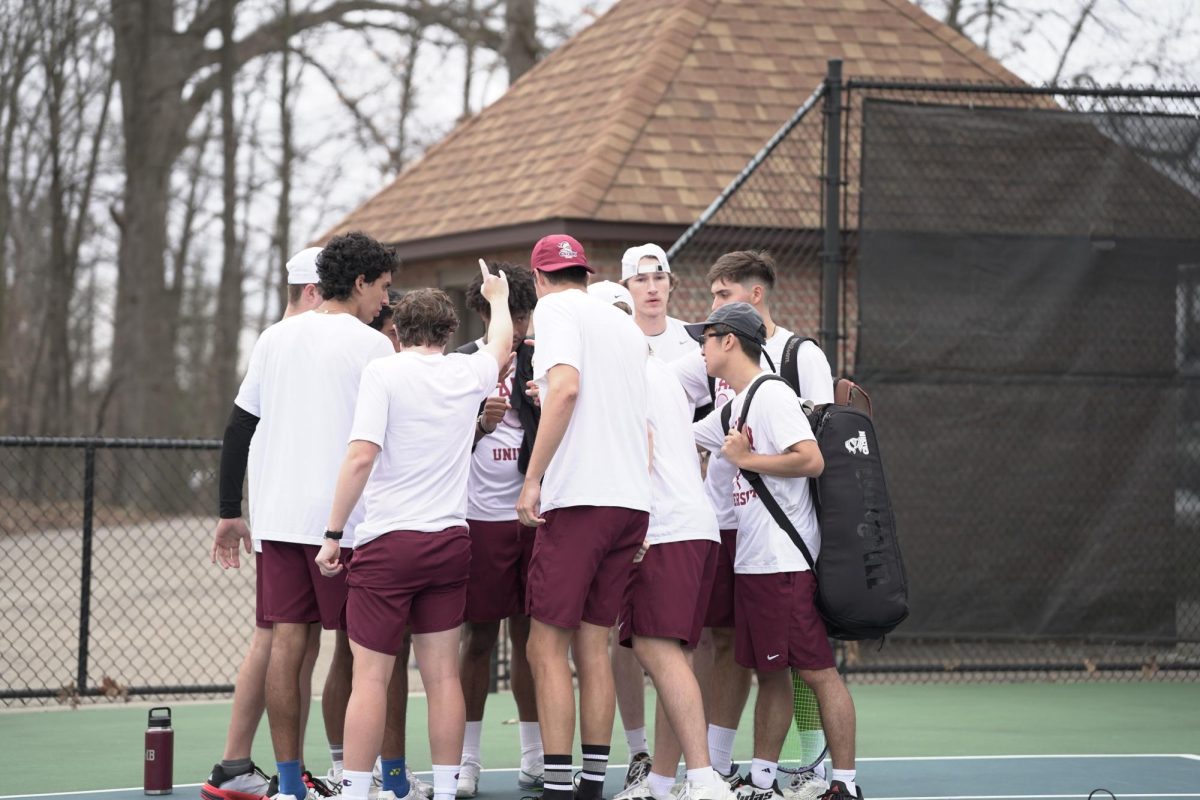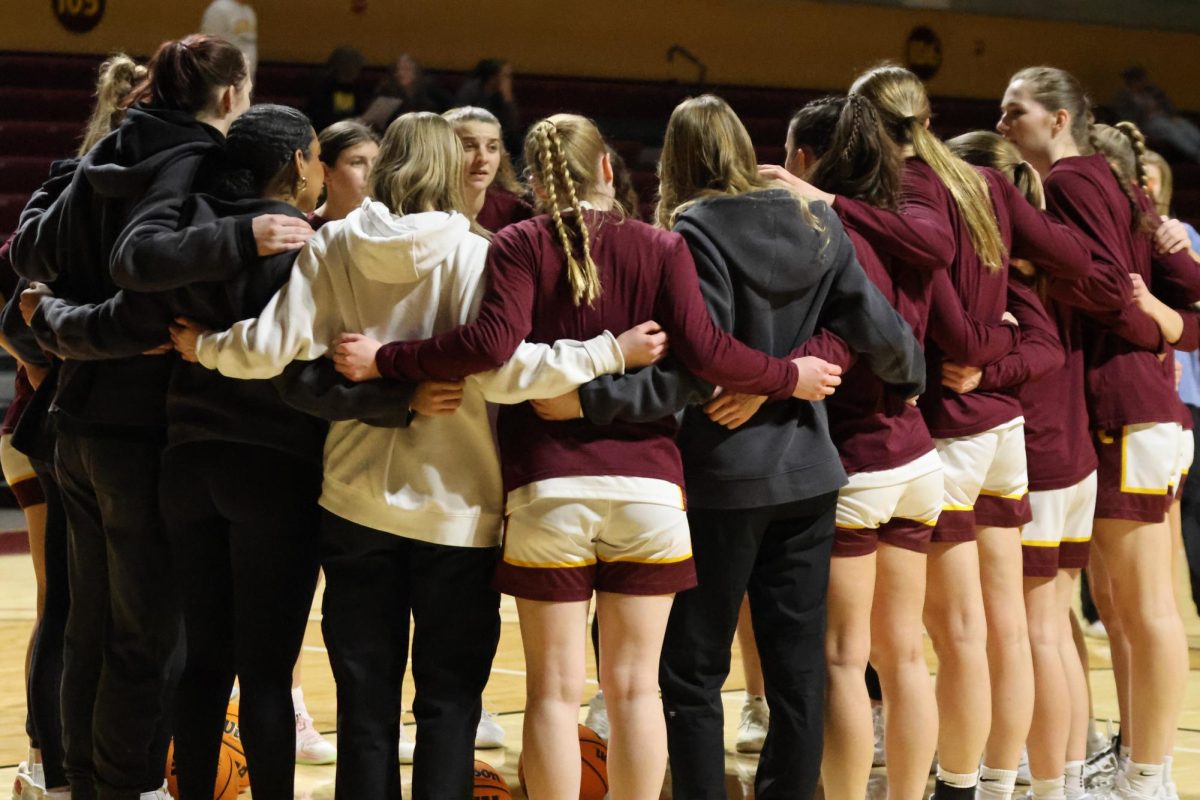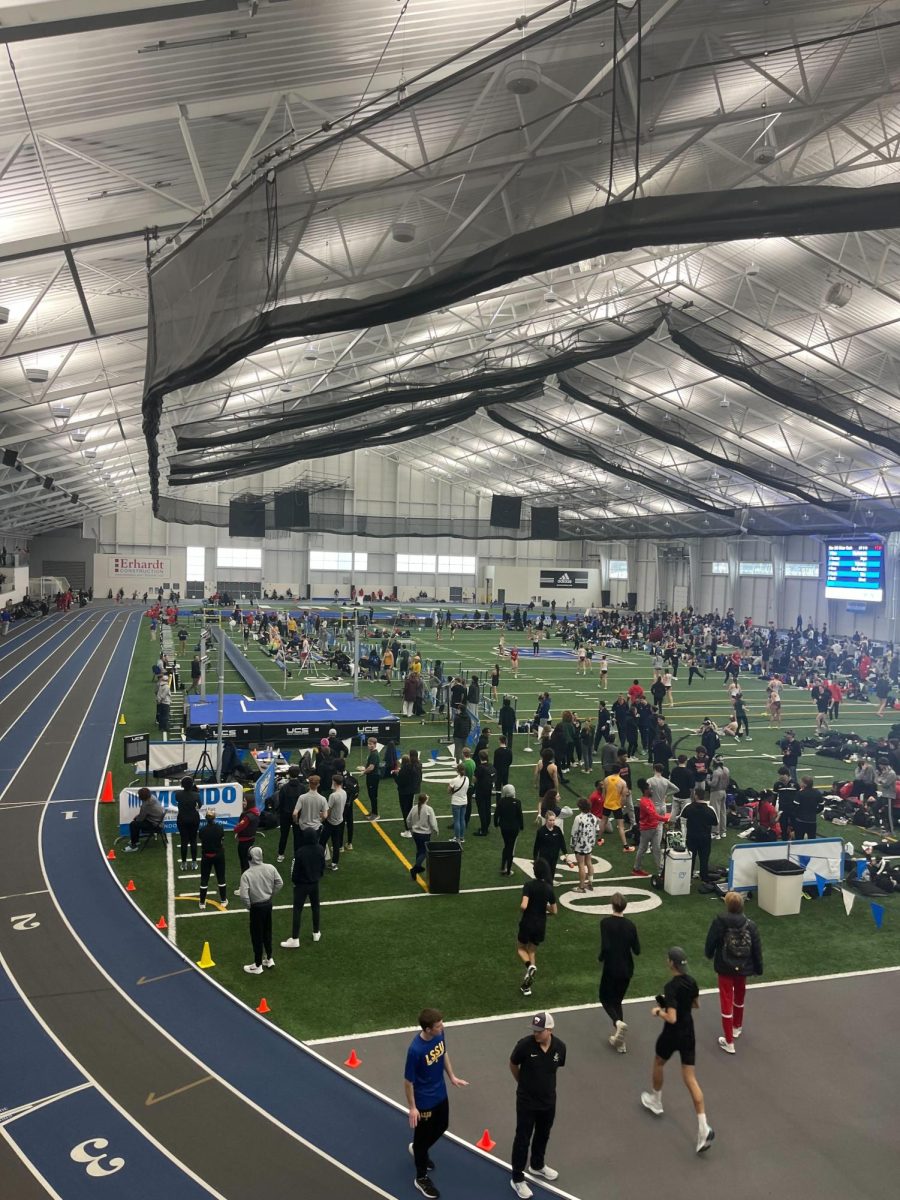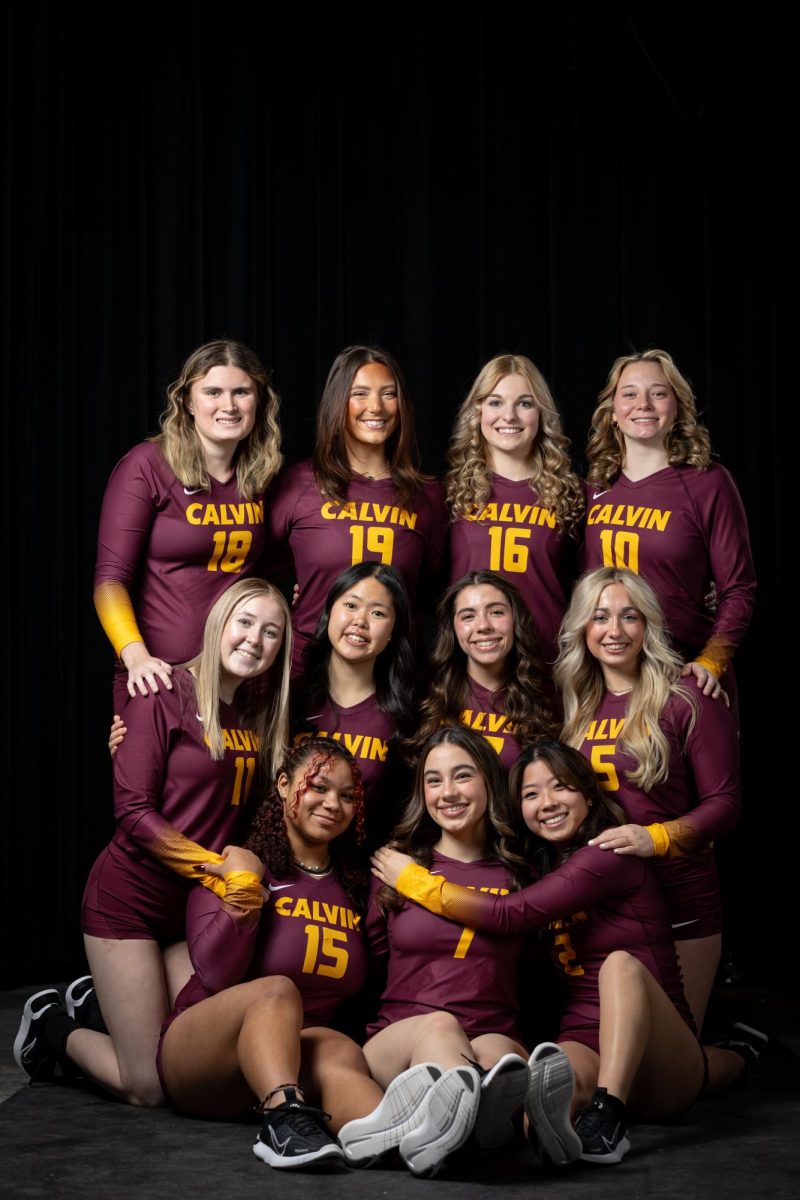When Micah Watson, professor of political science, interviewed for a position at Calvin, they asked him “all the tough questions.” After the official interview, Watson stopped in to see the faculty and staff basketball game “to make sure it was a decent game. Because if I was going to leave my school to come to Calvin, I wanted to make sure there was a good game.”
Intramural sports are a staple of student life at Calvin University, offering everything from basketball to futsal. For those looking to compete without the demands of a varsity team, they provide a fun but still competitive environment. However, little known to most, students aren’t the only ones getting in on the action. Behind the scenes, professors have their own version of an intramural — a lunchtime basketball tradition that spans back decades.
Known as “Noonball,” this faculty basketball game takes place Tuesdays and Thursdays at noon, usually in the Hoogenboom gym. Back in the 90s, there were typically 20 something professors involved, and now it’s more typically between six and 12. According to retired religion professor Kenneth Pomykala, “Easily over 200 people have played Noonball over the years.”
Unlike Watson, who played basketball for 3 years while studying at UC-Davis, most Noonball participants don’t have extensive basketball experience. Professors of all ages and abilities, including emeriti, participate.
One of the biggest appeals of this tradition is that it gives professors a fun, communal way to stay active and in shape. While running is certainly a great way to be active, it’s not for everyone. According to Professor Samuel Smartt, Watson once made an analogy that has become famous among Noonball participants: “Basketball is like cookies, and running is like the flour. It’s a necessary ingredient that doesn’t taste good on its own.”
Chances for exercise are especially important during the cold, dark days of February, where the stubborn sunlight might not appear for weeks. As the semester drags on and routines feel relentless, stepping away from responsibilities — even for a quick game — can be a much-needed recharge.
Smartt said Noonball “really is a mental help through the grind of the semester,” helping to mark the rhythm of the week and creating a place where Smartt and others are “able to let off some steam.”
For Gary Talsma, professor emeritus of mathematics, part of the value of Noonball has been the community it has created. “[I] met many more faculty and staff via Noonball than I’d have ever met through college committee assignments and teaching responsibilities,” Talsma said. Talsma, who retired in 2018, started participating in faculty basketball games in 1985.
The basketball court has also served as a place for fostering meaningful discussions. Professor Watson explained that people rarely ask someone else explicitly to be friends, to have deep conversation or to foster a meaningful relationship. These processes happen naturally, through the competitive banter, the memorable shots, the occasional hard foul — all of it creates a unique camaraderie that has turned a simple lunchtime game into a lasting community.
Noonball acts as a bridge between colleagues who might otherwise never cross paths. Whether it’s a retired professor staying connected, a young faculty member finding their footing or simply a group of educators unwinding in the middle of the day, this decades-old tradition proves that, sometimes, a community worth being a part of can be found in a place we wouldn’t have expected — we just have to be willing to go try something new.




